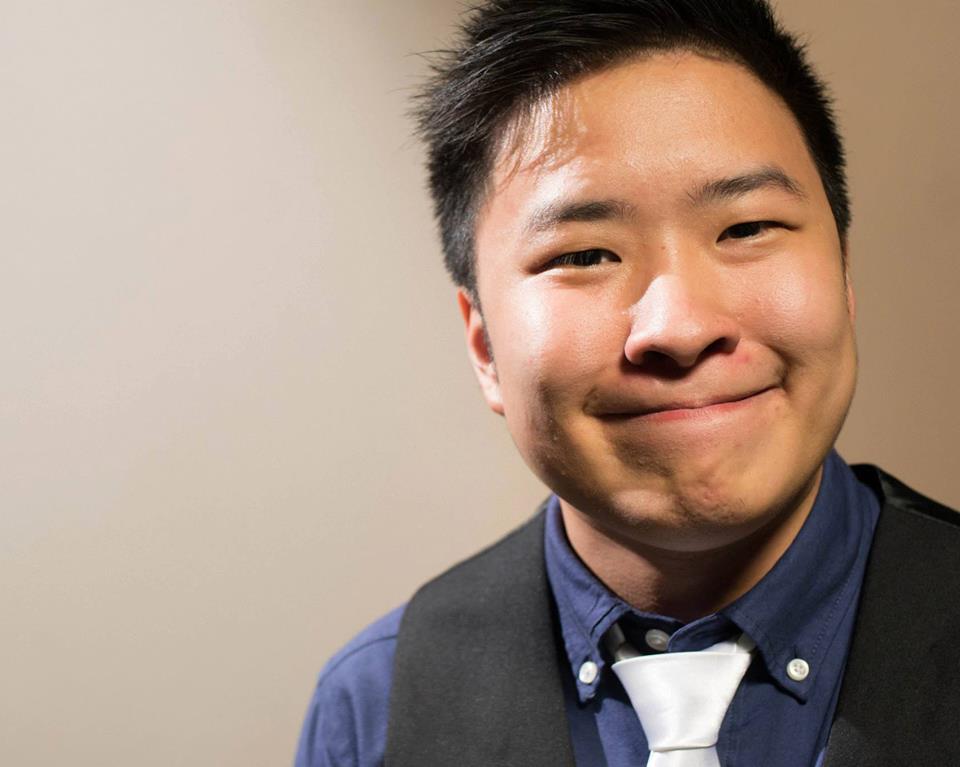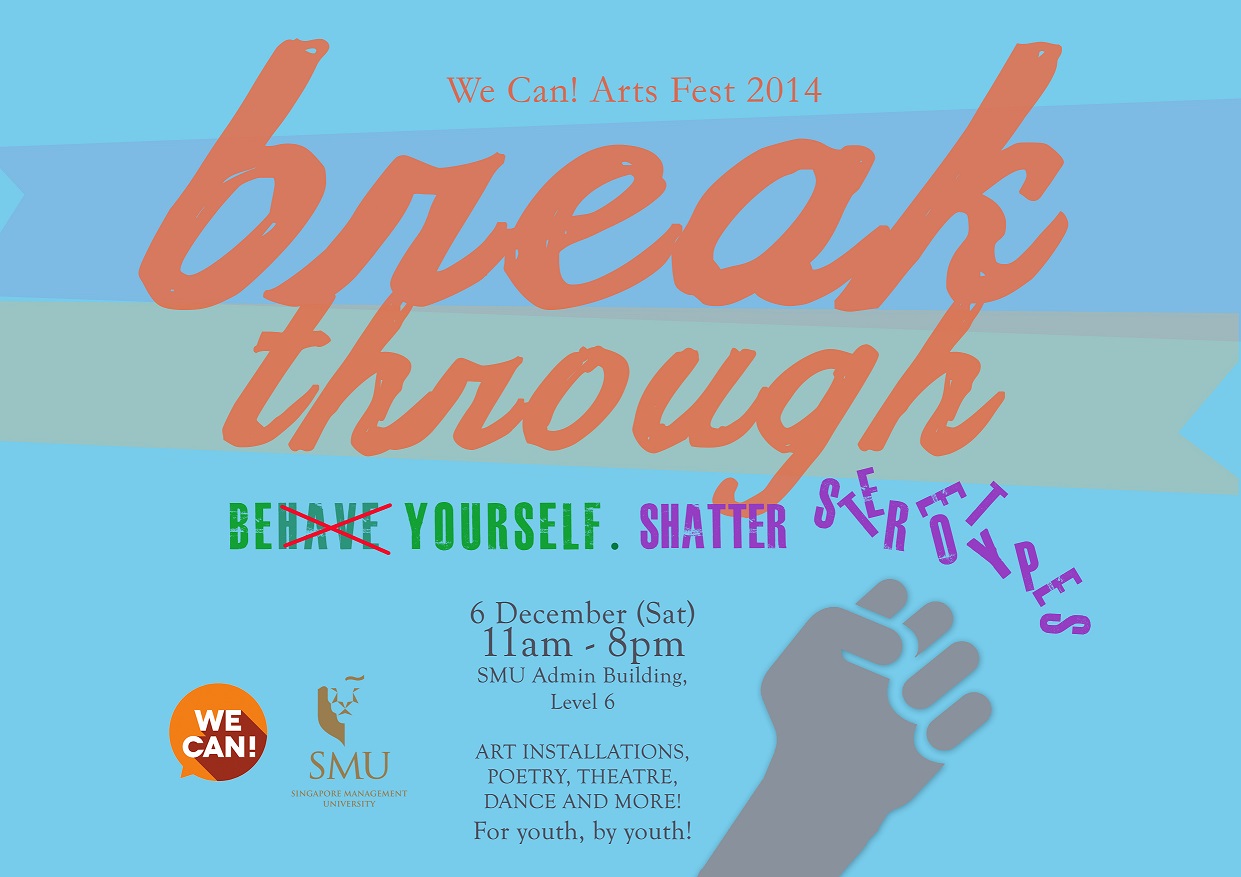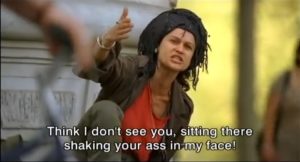
WORKSHOPS
Oh The Places You’ll Go…
11AM – 12.30PM | Function Room
Creative Writing workshop
A creative writing, creative thinking workshop based on the Dr. Seuss short story “Oh the places you’ll go”: a story about falling down and getting back up again, following your dreams and in the process discovering things you never thought possible. This workshop is designed to stimulate stories of personal discovery, of healing and of positive change and progression. It will explore the different ways of writing to create verse, prose and short stories. We will use these and combining techniques from the writing of Dr. Seuss; Repetition, patterns and positivity, to make our own unique stories of the places we’ll go. Facilitated by Jeni-Louise.
PRE-REGISTER FOR A SPOT HERE.
“Rescuing” Princesses & Pontianaks
11AM – 1.30PM | University Lounge
Creative Writing Workshop
Myths, folk-tales and stories impact who we are and how we behave as a society. In this workshop we will discuss and analyze some popular tales from different cultures, and invite you to re-write a story of your choice in a gender balanced way. Come be part of the conversation on how to create stories that positively influence the next generation. Facilitated by Raksha Mahtani and Radhika Pandya.
PRE-REGISTER FOR A SPOT HERE.
DISCUSSIONS
Human Library
12.45PM – 2.15PM | Function Room
Discussion
At the Human Library, attendees will have the opportunity to hear stories and have conversations with participants who will be sharing their personal experiences of gender-based violence and marginalisation as young people in Singapore. Many of these stories, like surviving dating violence as a teenager, battling misogyny in the army, being a domestic worker at fifteen and navigating Singapore society as a genderqueer person, often go unseen and unheard. Participants will also be sharing their ideas for ways forward and the role that you can play in making change. Through this event, we hope to encourage empathy for different struggles and lived experiences, and build community support around specific issues that youth care about. Register at the door.
Body Image: Privilege, Shame, Autonomy
2.30PM – 3.30PM | Function Room
Panel
This panel aims to create a safe space for youth to discuss and brainstorm solutions to address harmful societal discourses on body image and its associated violences (such as bullying, misogyny, racism) and harmful practices (such as disordered eating). The panel will feature four engaging speakers sharing a range of academic, theoretical and personal perspectives on these issues. Register at the door.
Featured Speakers: Teng Qian Xi, Sangeetha Thanapal, Chua Sing Rue, Sudev Suthendran
Reel Stories
3.45PM – 5PM | Function Room
Film Screening and Discussion
We will be screening two short films by local filmmakers, “Kristy” and “Unheard Voices of the Red Light District”. The following discussion will extract and examine the issues the films unravel, their real-life implications and how we can respond to them so as to bring positive change. The discussion will be facilitated by Vanessa Ho, the coordinator of Project X, a social initiative advocating sex workers’ rights in Singapore, and Marcia Ong, director and cinematographer of Kristy. The session will be moderated by Alex Tan, a youth Change Maker.
Unheard Voices of the Red Light District is a film that brings us deeper into the lives of Singaporean sex workers. Volunteers from Project X gathered interviews from 11 sex workers and together with artists Dixie Chan and Felicia Low, have created a film that hopes to raise awareness on issues faced by Singaporean sex workers in Singapore.
Kristy is a film about an 8-year old tomboy who loves to wear her favourite t-shirt. Her mother, however, would prefer her in dresses. The two go head-to-head in this touching tale of individuality, identity, and independence.
Death Wears A Dress
6PM – 7PM | Function Room
Panel
How do traditional gender roles play a part in the how women are imagined in the realms of horror and myth? How are these imaginings premised upon everyday assumptions regarding a woman’s place in society? Death Wears a Dress is a panel discussion put together by We Can! Singapore and EtiquetteSG, comprising writers and academics interested in the intersections of gender, culture, myth and monstrosity.
Featured Speakers: Nurul H., Ad Maulod and Zarina Muhammad. // Moderated by Tania De Rozario
PRE-REGISTER HERE.
PERFORMANCES
Boys Will Be Boys
2PM – 3.15PM | University Lounge
Interactive theatre
Boys Will Be Boys is a Theatre-in-Education programe, scripted in the overlooked male perspective. It portrays commonly seen gender stereotypes and their effects on individuals. It is designed to explore how the pressure on boys and men to be masculine in certain ways can impact violence against women and other men. The piece intends to empower men and boys to challenge and break this cycle. Shoes Theatre is an applied theatre collective formed in 2014. Focusing on the participatory nature of drama, its programmes focus on local issues, in hopes to impact a positive change.
Reflection Affection
3.30PM – 4PM | University Lounge
Dance performance
This dance, curated by youth Change Makers from Because I’m A Girl, a campus group from UWC East, communicates the struggles girls face everyday regarding their body image. It explores complex themes such anorexia, peer pressure and the importance of self acceptance.
Till Death Sets Us Apart
1.30PM and 5PM | University Lounge
Dance performance
Margueritte Vermersch is a 15-year-old dancer who has been dancing for 8 years. She will be performing a piece titled Till Death Sets Us Apart, about a young girl who is going through abuse at the hands of someone close to her, and how she decides to let go. She believes that sending a message of passion is the best way to make the audience feel what the artist is saying.
Who Am I?
4.30PM – 5PM | University Lounge
Dance performance
This dance piece, titled Who Am I?, will be performed by 12 Contemporary dancers, all students at United World College (East Campus), using movements, speech and visuals exploring the idea of gender stereotypes and bullying. The dancers portray various ‘accepted’ gender roles as well as roles that are frowned upon thus evoking internal conflict and pressure within themselves. The dancers take you on their journey through solos, duets and group work and leaves the audience questioning the actions and words of society.
Missed Connections Performance
5.15PM – 5.45PM | Function Room
Mixed Media Performance
Interrobang’s performance aims to explore the relationship between the sights, sounds and words of gender-based violence. Through an experimental fusion of sonic art, film and spoken word, this performance intends to challenge the status quo, and microaggressions which are so deeply concealed in our everyday lives that we are oftentimes unaware of their existence and how they contribute to gender-based violence.
Shh…Diam!
5.45PM and 8PM | University Lounge
Live Music
Shh…Diam! is a queer feminist band from Kuala Lumpur and consists of Yon on guitar, Farah/Faris on guitar and vocals, Yoyo on bass and Jellene on drums. They aren’t athletes. Established since 2009, they plan to expand into a line of bespoke clothing that speaks the language of the soul. Until then, you can buy their t-shirts. Check them out at facebook.com/shhdiam.music
Body/Language
7PM – 8.15PM | University Lounge
Spoken word performance
Body/Language was a series of creative writing workshops co-developed by WE CAN Singapore and Etiquette SG for the Singapore Writers Festival. The workshops aimed to engage participants in an effort to unpick prevailing notions of gender and to uncover experiences and stories of their own bodies through poetry. This presentation will showcase some of the work developed by workshop participants, who come from diverse backgrounds, as well as spoken word pieces by talented youth Change Makers who have written especially for Breakthrough, Hannah Bedford, and Ananya Sood.
ACTIVITIES
Pretty Ugly
3.30PM and 5PM | University Lounge, Studio Room 1
Interactive Performance Art
Society’s unending preoccupation with women’s physical beauty has serious consequences on women’s health, body image and morale. Impossible standards of beauty inflicted by the media, culture and society are a form of everyday violence that women and girls have to grapple with. Explore conventional ideas of beauty through this performance art piece where two artistes give you the unusual opportunity to “beautify” and “uglify” them with the items presented. Each performance will last 20 minutes. Audience members are invited to use the products available on the artistes, who present as a canvas for your expression.
Stepping Stones
Ongoing | University Lounge
Interactive Installation
Build a growing installation using pebbles and words to create a path towards a society free of gender inequality, oppression and violence. The stepping stones to change can be written or drawn on, signed or anonymous. Put down words or images that represent positive change, better alternatives, moments of growth, new perspectives and experiences of healing that may have happened in your life of someone else’s. The Path is made stronger with every stone added.
When Bellies Speak
2.15PM and 5PM | Patio
Activity facilitated by Dana Lam
The belly, the part of the body below the breastbone containing the stomach and the bowels, is the acknowledged storehouse of personal strength and creativity in many cultures. At When Bellies Speak, you will learn to make a plaster cast and turn your belly into an objet d’art representing your inspiration, your hope, your joy, your life’s stories. You will strengthen the connection with your personal powerhouse and have a work of art unique to you. With your permission, your stories may be recorded and edited for inclusion in installation of the casts. This activity will be facilitated by Dana Lam. Dana Lam is a published author and artist. Her work includes She Shapes a Nation (2009) , a short film of women’s voices. She is a former president of AWARE and teaches part-time at LASALLE College of the Arts. When Bellies Speak is inspired by the joy, the courage, the labour and camaraderie of women. It is supported by The Arts Fund.
Breakthrough
Ongoing | University Lounge
Installation
A seemingly harmless advertisement can adversely influence our personal idea of what an ideal body type should be. With present-day media being the highly influential medium that it is, we may feel the need to conform to body stereotypes portrayed by the media. But we don’t have to. Join us at our ‘Breakthrough’ booth. Together, we can break away from the boxes that the media put us in and be the unique individual that we all are.
Seeing The Unseen
Ongoing | University Lounge
Photography Installation
Often abuse and violence are associated with overt physical scars and visual signs of exploitation. However there are a other forms of abuse including using derogatory language, strict gender roles, pshycological abuse and narrow notions of beauty that are often not acknowledged by society. The aim of this exhibition is to help people to acknowledge that there are other forms of violence. We need to challenge our acceptance of violence instead of normalising it. This exhibition is presented by Maria Shah and Nisha, students from Because I’m A Girl, UWC Tampines.
Missed Connections Installation
Ongoing | University Lounge, Studio Room 2
Interactive Installation
At this interactive installation by Interrobang, visitors will write down their individual commitment to help end gender-based violence, pose with their commitment and have their pictures taken against photographs of settings where gender-based violence occurs. Part of the installation is a scrapbook of findings when the group went around to various places in Singapore to interview members of the public from all walks of life, asking them about forms of gender-based violence they had experienced and the ways in which their gender identities are policed by society. Through this installation, we hope to allow audiences to identify everyday forms of gender-based violence and to empower them to make a change in their community.
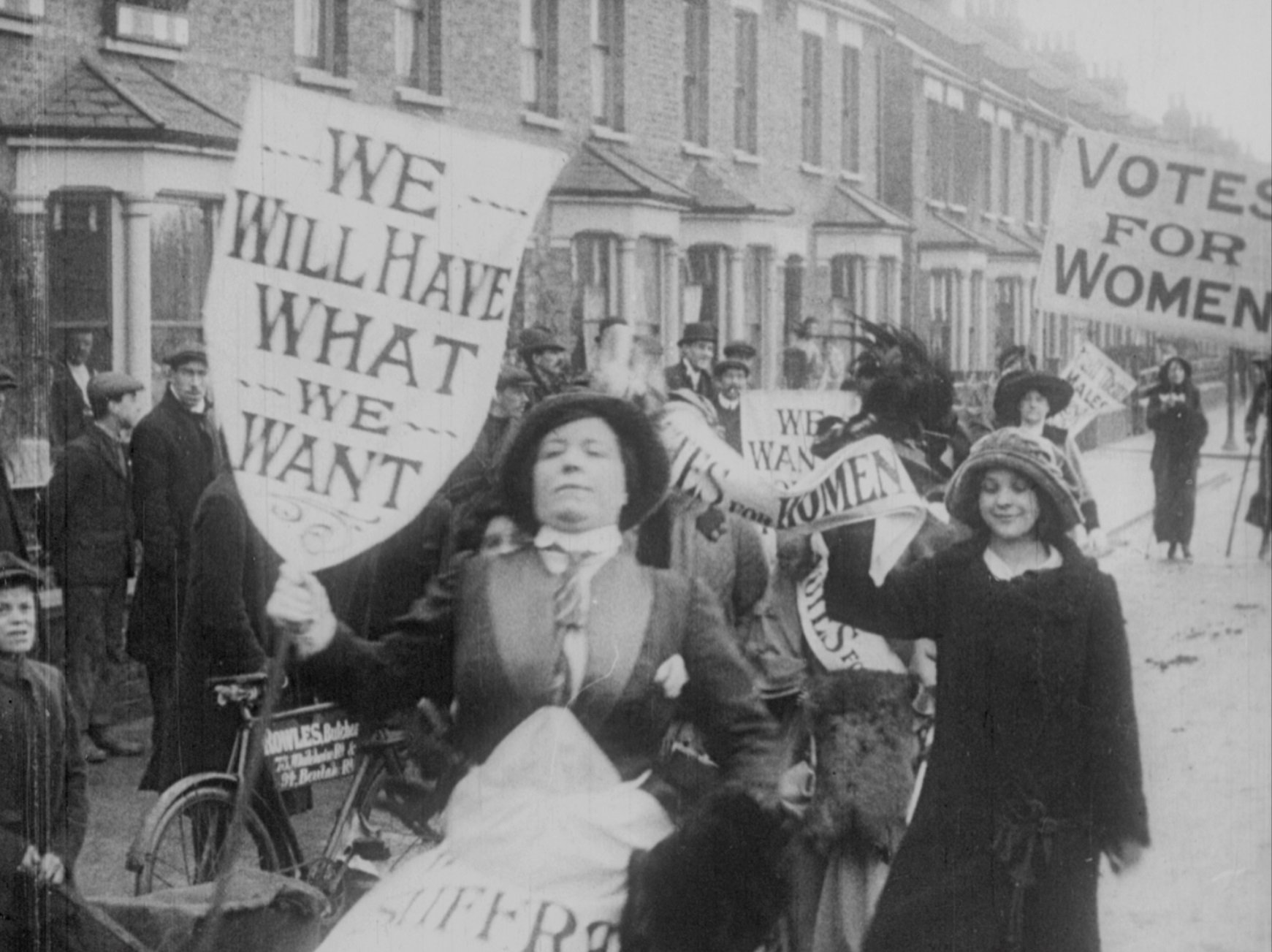 Opened in cinemas early this year, the film Suffragette depicted the beginnings of the suffrage movement in the UK – a pursuit of women’s voting rights. Set in the early 1920s, the film illustrated how women were considered less important than men and as a result, their voices were invalidated and disregarded. Granted, the fight for women’s voting rights was an arduous one. Having conducted peaceful demonstrations and submitted parliamentary testimonies, voices of the working class women were ignored time and time again. This left these women with no choice but to resort to violence – a language that man at that time presumably only considered seriously. After a series of violent destruction of public and private property and consequently numerous jail terms for the women involved, the film ended with the death of Emily Davison which attracted so much international attention that the King had to address. Historical records reveal that British women were granted voting rights in 1928.
Opened in cinemas early this year, the film Suffragette depicted the beginnings of the suffrage movement in the UK – a pursuit of women’s voting rights. Set in the early 1920s, the film illustrated how women were considered less important than men and as a result, their voices were invalidated and disregarded. Granted, the fight for women’s voting rights was an arduous one. Having conducted peaceful demonstrations and submitted parliamentary testimonies, voices of the working class women were ignored time and time again. This left these women with no choice but to resort to violence – a language that man at that time presumably only considered seriously. After a series of violent destruction of public and private property and consequently numerous jail terms for the women involved, the film ended with the death of Emily Davison which attracted so much international attention that the King had to address. Historical records reveal that British women were granted voting rights in 1928. 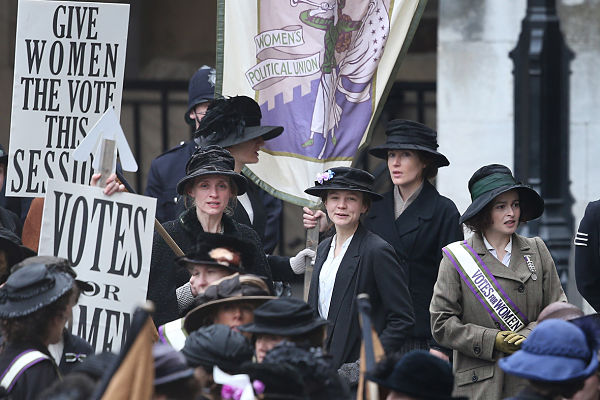 Admittedly, I only knew about the word “suffrage” through this film, and that only goes to show how much I have taken the suffrage movement for granted. From a young Singaporean woman’s point of view, this movement seems at first glance to be a distant one. Unlike the UK, there was no suffrage movement in Singapore because we have been practising universal suffrage since the start of democratic elections in 1947. Women are not banned from running for the elections and standing in parliament, though only one of the full ministers in the current parliament is female.
Admittedly, I only knew about the word “suffrage” through this film, and that only goes to show how much I have taken the suffrage movement for granted. From a young Singaporean woman’s point of view, this movement seems at first glance to be a distant one. Unlike the UK, there was no suffrage movement in Singapore because we have been practising universal suffrage since the start of democratic elections in 1947. Women are not banned from running for the elections and standing in parliament, though only one of the full ministers in the current parliament is female.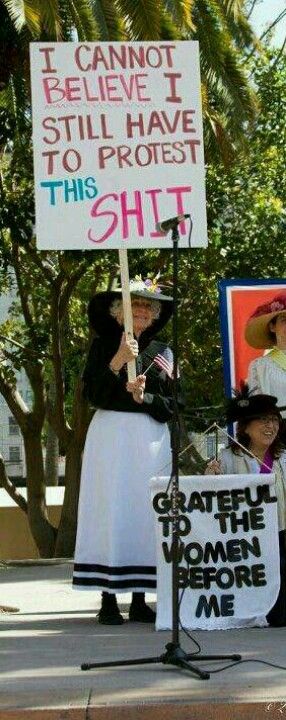 In actuality, the suffrage movement relates to something close and relevant to societies today. Suffrage reflects merely one aspect of gender equality. Women around the world, Singapore included, are still fighting in many ways to be treated as equals. The gender gaps still exists in Singapore. Another case in point: Have you been shut off from a discussion just because you don’t serve in the army or just because you menstruate? Gender discrimination in Singapore is real and it is very much alive in everyday discourse. This rhetoric is also reinforced and legitimated insofar as the constitutional right to non-discrimination assured by Article 12 does not extend to categories such as “gender” and “sex”.
In actuality, the suffrage movement relates to something close and relevant to societies today. Suffrage reflects merely one aspect of gender equality. Women around the world, Singapore included, are still fighting in many ways to be treated as equals. The gender gaps still exists in Singapore. Another case in point: Have you been shut off from a discussion just because you don’t serve in the army or just because you menstruate? Gender discrimination in Singapore is real and it is very much alive in everyday discourse. This rhetoric is also reinforced and legitimated insofar as the constitutional right to non-discrimination assured by Article 12 does not extend to categories such as “gender” and “sex”.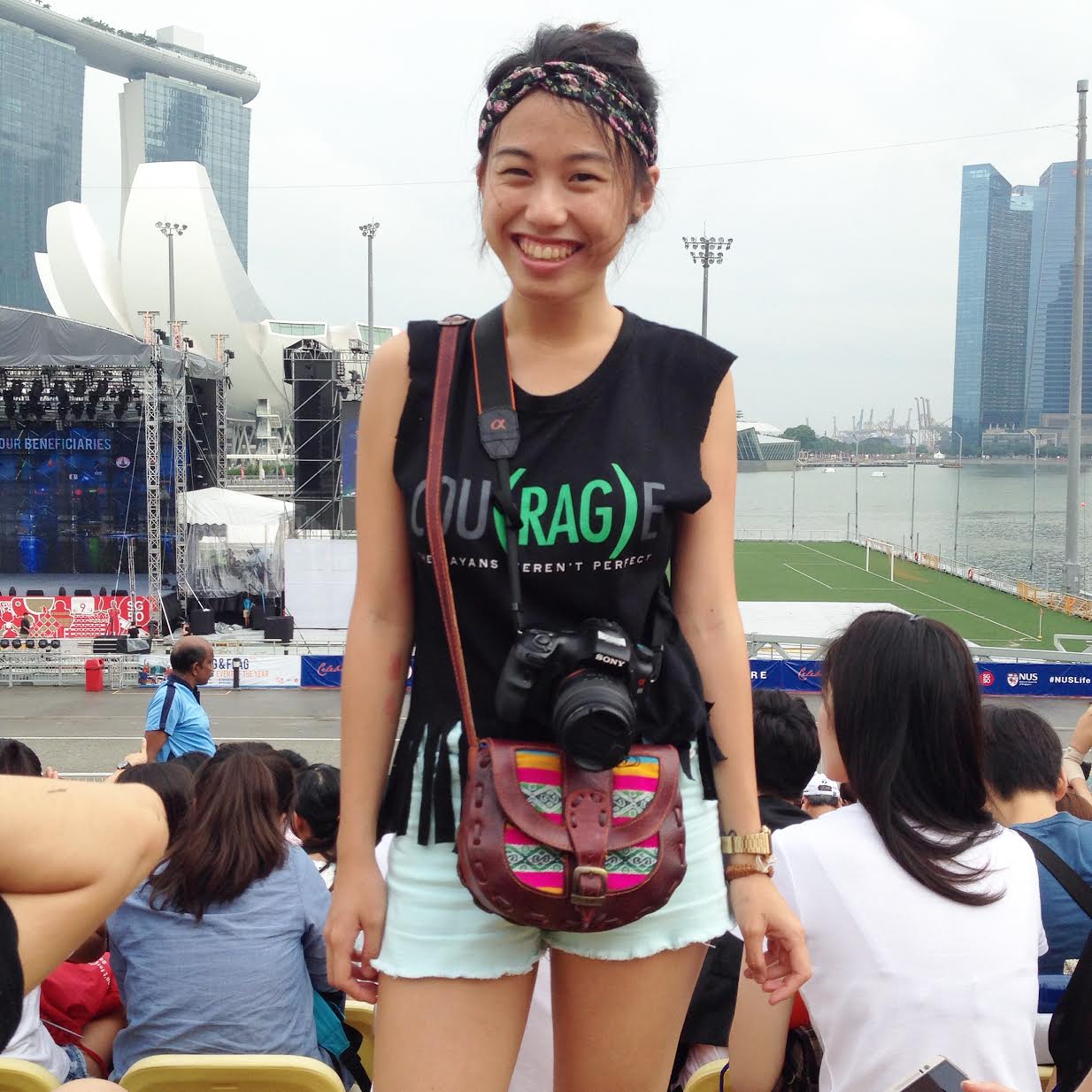 About the Author: Living by the motto permanent impermanence, Estelle realises that with every moment never capable of repeating itself, life is simply too short to be spent waiting for things to happen. She is currently a Sociology undergraduate who believes that the power of words and the arts can inspire conversations.
About the Author: Living by the motto permanent impermanence, Estelle realises that with every moment never capable of repeating itself, life is simply too short to be spent waiting for things to happen. She is currently a Sociology undergraduate who believes that the power of words and the arts can inspire conversations.